Functional Analysis and Treatment of Arranging and Ordering by Individuals with an Autism Spectrum Disorder
$19.99
BCBA CEUs: 2 CEUs
Read the following article and pass a 9-question quiz on it:
Rodriguez, N. M., Thompson, R. H., Schlichenmeyer, K., & Stocco, C. S. (2012). Functional analysis and treatment of arranging and ordering by individuals with an autism spectrum disorder. Journal of Applied Behavior Analysis, 45 (1), 1-22.
Brand: CEUniverse
Description
To earn credit, you will be required to read the article and pass a 9-question quiz about it. You can retake the quiz as many times as needed, but you will not receive exactly the same questions each time.
Abstract
Of the diagnostic features of autism, relatively little research has been devoted to restricted and repetitive behavior, particularly topographically complex forms of restricted and repetitive behavior such as rigidity in routines or compulsive-like behavior (e.g., arranging objects in patterns or rows). Like vocal or motor stereotypy, topographically complex forms of restricted and repetitive behavior may be associated with negative outcomes such as interference with skill acquisition, negative social consequences, and severe problem behavior associated with interruption of restricted and repetitive behavior. In the present study, we extended functional analysis methodology to the assessment and treatment of arranging and ordering for 3 individuals with an autism spectrum disorder. For all 3 participants, arranging and ordering was found to be maintained by automatic reinforcement, and treatments based on function reduced arranging and ordering.
14 reviews for Functional Analysis and Treatment of Arranging and Ordering by Individuals with an Autism Spectrum Disorder
| 5 star | 50 | 50% |
| 4 star | 50 | 50% |
| 3 star | 0% | |
| 2 star | 0% | |
| 1 star | 0% |
Sorry, no reviews match your current selections
You may also like…
-
BundleSale!

16 BCBA CEUs
Stellar Bundle
$159.92Original price was: $159.92.$111.92Current price is: $111.92. Add to Cart -
Article Quiz
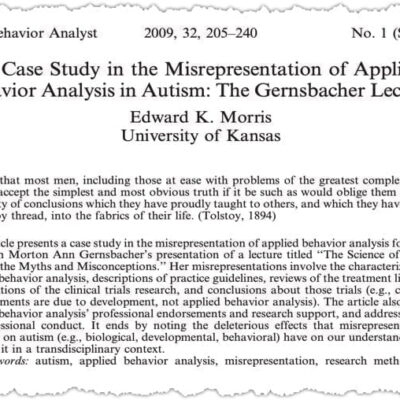
3.5 Total BCBA CEUs
3.5 Ethics CEUsA Case Study in the Misrepresentation of Applied Behavior Analysis in Autism: The Gernsbacher Lectures
Edward K. Morris4.39 out of 5(57)$34.99 Add to Cart -
Article Quiz
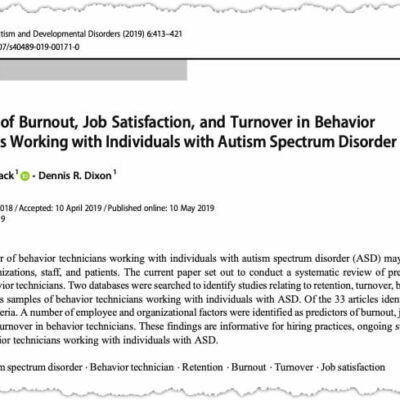
1 Total BCBA CEU
1 Supervision CEUPredictors of Burnout, Job Satisfaction, and Turnover in Behavior Technicians Working with Individuals with Autism Spectrum Disorder
Marlena N. Novack & Dennis R. Dixon4.59 out of 5(49)$9.99 Add to Cart
Related products
-
Article Quiz
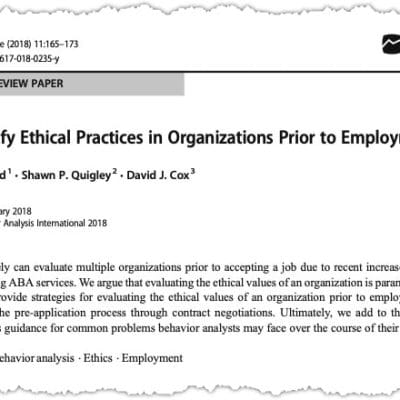
1 Total BCBA CEU
1 Ethics CEUHow to Identify Ethical Practices in Organizations Prior to Employment
Matthew Brodhead, Shawn Quigley, & David Cox5.00 out of 5(1)$9.99 Add to Cart -
Article Quiz
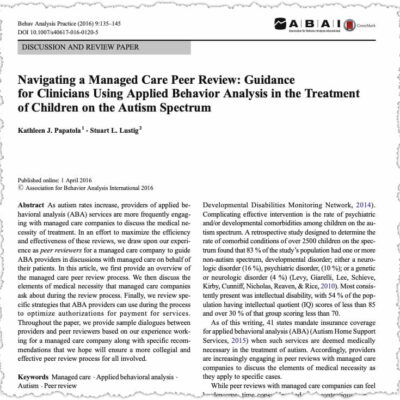
1.5 BCBA CEUs
Navigating a Managed Care Peer Review
Kathleen J. Papatola & Stuart L. Lustig4.50 out of 5(2)$14.99 Add to Cart -
Article Quiz
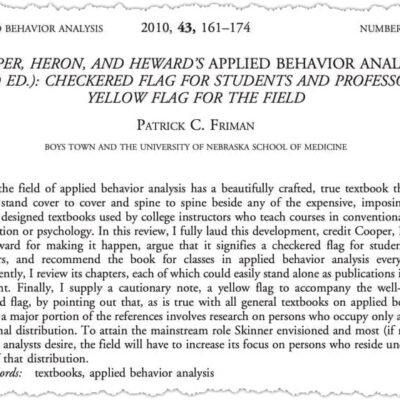
1.5 BCBA CEUs
Cooper, Heron, and Heward’s Applied Behavior Analysis (2nd ed.): Checkered Flag for Students and Professors, Yellow Flag for the Field
Patrick C. Friman4.44 out of 5(16)$14.99 Add to Cart
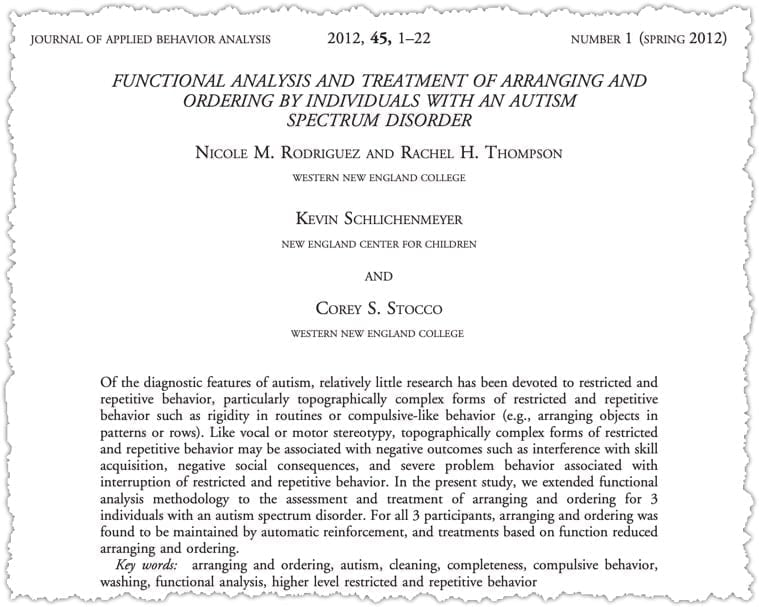


Interesting article.
Great Read! Easy to follow.
Good overview of the FA process. We need more.
This was a good read, straight forward and worthwhile.
I really don’t like how a singular error causes your score to be reduced by 2 points. During most quizes it doesn’t make a difference because you have to retake the quiz even if you get one wrong, but getting your score reduced by ‘2’ when you only got 1 question incorrect. What it “appears” to be doing is reducing the score by ‘1’ for selecting the incorrect answer and additionally reducing your score by ‘1’ for not selecting the correct answer. Might just be a technology adjustment?
That is not how our quiz scoring works. Some questions, however, have multiple correct answers (“check all that apply” type questions) and are worth multiple points. Thus, on those questions you can have your score reduced by 2 or more points if you do not select 2 or more of the possible correct answers (i.e., your score is not reduced by multiple points for making a “singular error” — it is reduced by multiple points for making multiple errors). If you believe a quiz is being scored incorrectly, please contact our helpdesk with a description and evidence of your claim.